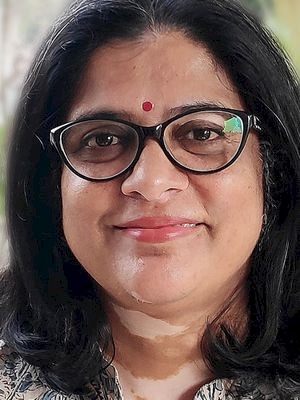Room 113, School of Arts and Sciences

A cursive script called Modi (moḍī,) was in use from the fifteenth century to write in Marathi, the dominant language of Maharashtra in western India. Modi’s usage expanded under the medieval Sultanat and early modern Maratha kingdoms within a broad di-graphia: literati used Balbodh (a variant of today’s Devanagari script) to write literary and sacred texts, and Modi for letters, revenue records (which were frequently bilingual, with Persian) and ordinary jottings. In the nineteenth century, however, print technology favoured Balbodh, as it could render a larger range of phonemes current in Marathi speech, and Modi usage gradually declined. Devanagari is today the official script used to write Marathi, even though recent years have seen a resurgence in the interest in Modi. Overall, the story of the Modi script usually appears as a ‘lack,’ ‘deviation’ or afterthought from the story of Marathi language history proper, even though it has great symbolic value as a visual icon of the early modern Maratha state. In this talk, drawing on my recently published book Scripts of Power, I undertake a cultural history approach, focusing on the practice, usage, and changing meanings and deployments of the Modi script over the early modern and colonial eras, to probe the interplay between writing, script, and language and its relationship to bureaucratic and social power. I am interested in how a now-marginal and very infrequently-used script like Moḍī can tell us about social and regional power and identity, and offer fresh ways to think about language history.
Prachi Deshpande's interests are in historiography, memory studies, language historiography, and regional politics. She is the author of Creative Pasts: Historical Memory and Identity in western India (2007) and of Scripts of Power: Writing, Language Practices, and Cultural History in Western India (2023). She is the recipient of the prestigious Infosys Prize in Humanities in 2020. She has taught at several Universities and institutions of repute including University of California, Berkeley.